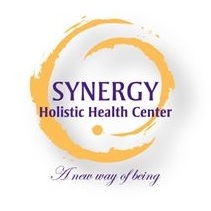 Known as “the master mineral,” magnesium is responsible for more than 300 metabolic processes in the body. Magnesium deficiency can lead to a host of symptoms including calcium deficiency, poor heart health, muscle cramps, tremors, nausea, high blood pressure, blood glucose, and respiratory illness.Most people fall short despite Magnesium’s widespread benefits. About 75% of the population do not get enough magnesium in their diet. Women should consume 320 milligrams per day and men should consume 420 milligrams. Magnesium a mineral in the body is involved in more than 300 Metabolic reaction in the body. Our everyday routine may cause the lack of Magnesium.
Known as “the master mineral,” magnesium is responsible for more than 300 metabolic processes in the body. Magnesium deficiency can lead to a host of symptoms including calcium deficiency, poor heart health, muscle cramps, tremors, nausea, high blood pressure, blood glucose, and respiratory illness.Most people fall short despite Magnesium’s widespread benefits. About 75% of the population do not get enough magnesium in their diet. Women should consume 320 milligrams per day and men should consume 420 milligrams. Magnesium a mineral in the body is involved in more than 300 Metabolic reaction in the body. Our everyday routine may cause the lack of Magnesium.
Some Possible Causes of Magnesium Deficiency
- Excess Calcium
- Digestive issues
- Poor nutrition
- Strenuous exercise
- Low-carb diets
- Alcohol consumption
- Caffeine
- Being older
- Medications taken for acid reflux
- Stress
Signs of Magnesium Deficiency
Dubbed the “invisible deficiency” by some experts because it’s so hard to spot and diagnose, magnesium deficiencies are more dangerous than you might think. “Magnesium is involved in over 300 biochemical reactions in your body. It affects everything from your heartbeat to your muscles to your hormones. The following are signs of Magnesium deficiency…
- Chronic fatigue
- Muscle cramps
- Numbness
- Nausea
- Irregular heartbeat
- High blood pressure
- Migraines
- Osteoporosis
- Asthma
How To Get Enough Magnesium
When you are not consuming enough Magnesium, your body may drain away magnesium from your bones and muscles. This can cause decreased bone mineral density and reduce muscle mass and strength. This can lead to the risk of falls and reduced quality of life. To make matters worse, this condition can be difficult to detect with medical tests. Since only 1% of magnesium is found in your blood (most is in your bones or organs), a simple needle prick often won’t help determine your levels. Diagnoses are usually made through process of elimination and by examining a patient’s lifestyle. To maintain a healthy magnesium level, it’s best to get this mineral from food, especially high-fiber foods such as dark green leafy vegetables, unrefined grains, nut, and beans. There are also many supplements we can help you with to make sure you are getting enough Magnesium.
Synergy Holistic Health Helps Clients With Whole Food Nutrition and Response Testing
Nutrition Response Testing is an interesting and fun way to learn what supplements your body needs and what your nutritional priorities are for health and healing. It is a way of communicating with the body using a specific type of muscle testing called kinesiology. Nutrition Response Testing also tries to identify if there is something interfering with the body’s communication system or interfering with its ability to heal.
>> Learn More
Contact us (859-525-5000) for more information -or- request and appointment!
—
 About Synergy Holistic Health Center
About Synergy Holistic Health Center
SYNERGY Holistic Health Center supports you in your journey towards health, happiness, and wholeness, and to provide a safe space for that transformation to unfold. Our commitment is to honor you and your choices, and to provide guidance, education, and skills to support your goals so that you can experience your optimum health and highest personal potential.
> Learn More



